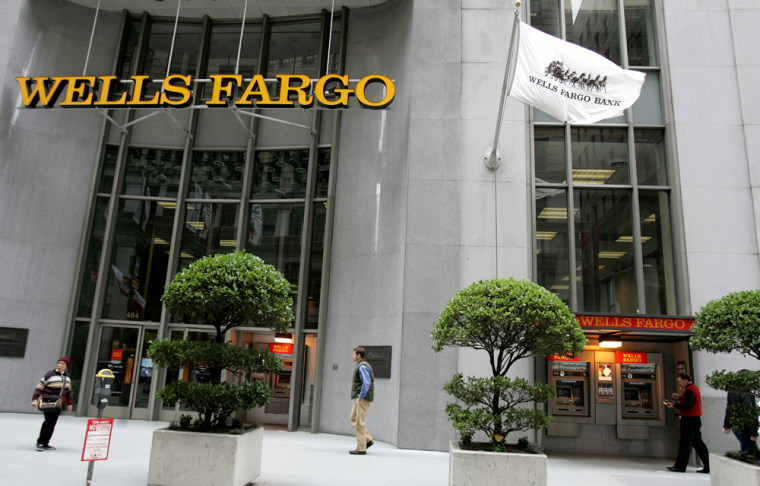Psst…want a free iPod? How about a George Foreman Grill? These are not come-ons from some street vendor or late-night infomercial, but incentives being offered by the bank down the street. To grab and keep consumers’ attention, financial institutions know it takes more than a banner promoting free checking accounts these days.
“Incentive programs are a way to build customer loyalty,” explains Genie Driskill, COO and senior vice president of research with Synergistics Research Corp. in Atlanta, a firm that helps banks gauge consumer preferences.
Building loyalty is good, but with increasingly alluring promotions, it appears many banks are going above and beyond, trying to buy it outright. The competition for attention and loyalty is definitely to the consumer’s advantage these days.
For instance, Citibank’s ThankYou program rewards customers based on the number of bank products they use and the frequency with which they use them. Points — redeemable for everything from TVs to gift certificates — are awarded for every direct deposit, bill paid online, and transaction made with a linked debit or charge card. The more business transacted through Citi, the more stuff a customer can accumulate.
At Guaranty Bank, with branches in Texas and California, it is air miles that accumulate through its AirMiles Checking account. American Airlines Advantage miles accrue based on the account’s average daily balances—the higher the balances, the more miles a bank customer receives.
Bank of America’s Keep the Change program encourages frequent use of a checking account-linked debit card by rounding up every amount spent to the nearest dollar. The difference is automatically deposited to a savings account, offering a painless option for saving more. Now, throw in three months of matching funds from the bank, and customers are literally paid to save their money.
Bypassing programs altogether, Chase is flat out paying for new accounts. It is currently offering $50 to Chicagoans willing to switch their checking accounts.
Why the growing interest in the lowly checking account? Banks now recognize it as the marketing gateway to a household’s financial life and all the higher-end — and higher fee-producing — products like mortgages, retirement accounts and insurance policies. Checking accounts are such valuable gateways that $50 upfront is a small entry price. An origination fee here, a late charge there and pretty soon that $50 will look like a smart investment given the years of fees and interest charges it can lead to.
Certainly bank promotions are nothing new. But with consumers trained by the airline, credit card and retailing industries to expect some manner of kickback for every transaction, an occasional toaster or cuddly toy promotion will not cut it any more.
There is, however, a small snag to adapting incentive-based marketing to the banking industry, which may explain the recent escalation in the attractiveness and competition among bank promotions.
“It takes a lot to get a customer to switch banks,” says Driskill. “A bank has to do something really wrong to cause a consumer to leave.” The reason is that no matter how shiny the bait, it can be a hassle to switch — from waiting for delivery of new checks to changing direct deposit instructions or re-entering automatic bill payment information.
For Carol Ostermann of Golden, Colo., it took years of indifference to her rather simple customer service needs for her dissatisfaction to reach the point of departure. Years, and the sudden assessment of monthly low balance fees to her granddaughter’s savings account, prompted her to take action.
“They never even asked why we were closing all our accounts,” says Ostermann. But when she did switch, it was not for a free iPod, or for $50 — though she admits, cash would have been nice. She wanted personalized, sensitive customer service. “Frankly I prefer good service to new appliances. I looked for no minimums, no monthly charges for my granddaughter’s account, hassle-free check cashing and minimal waiting time. Also better interest rates,” says Ostermann who found everything she wanted at a local bank.
Her priorities are not atypical according to Synergistics’ research. This in part is driving some banks to stay away from promotions based on shiny objects and simply promote quality service as its own reward.
Wachovia is among those banks not currently offering cash and prizes. “Our proposition is based on high level of customer service and the convenience of our ATMs and branch offices. An ATM is never more than 10 minutes away in any direction,” says Scott Sylvestri, a spokesperson for the Charlotte, N.C.-based bank. “But, because switching banks requires effort, we developed the ‘Easy Switch Kit’ to minimize the hassle.” The kit provides checklists and pre-populated forms to reduce the inconvenience.
What should all this mean to consumers?
It pays to shop around. If checking and online bill payment are not free, ATM fees too high and too frequent, if people bring their knitting to a teller line anticipating a wait — if there is no incentive for staying with a bank, a better deal may be had elsewhere.
Depending on what financial services are used or how frequently and how high account balances run, the increasingly intense competition for basic banking services opens up a whole host of negotiating and incentive-based opportunities to get more out of a banking relationship than indifference and fees. Increasingly, the person who writes the checks is able to take charge of their banking account relationship.
